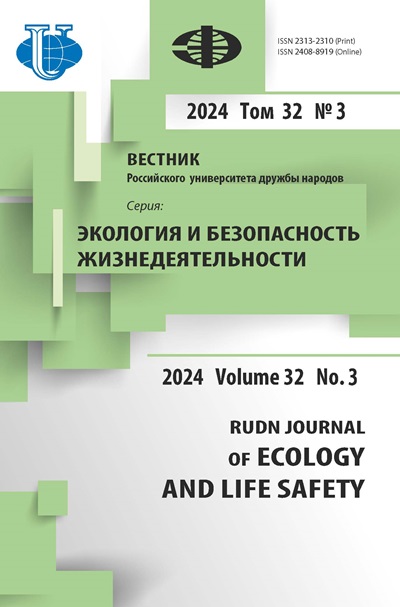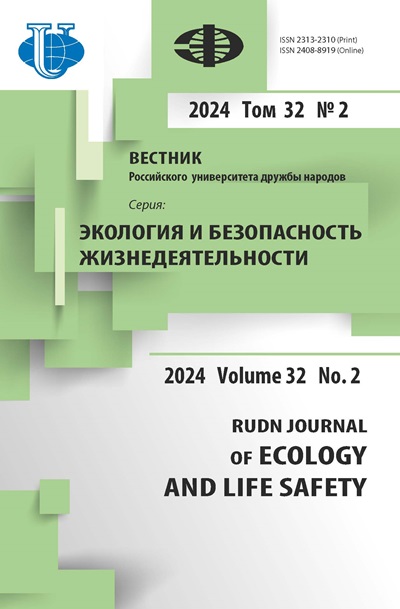Negative contribution of the fishing fleet to marine pollution
- Authors: Iakimov A.V.1
-
Affiliations:
- Far Eastern State Technical Fisheries University
- Issue: Vol 32, No 2 (2024)
- Pages: 118-125
- Section: Ecology
- URL: https://journals.rudn.ru/ecology/article/view/39776
- DOI: https://doi.org/10.22363/2313-2310-2024-32-2-118-125
- EDN: https://elibrary.ru/XHNQXT
Cite item
Full Text
Abstract
Operational waste, discharge of waste and biological resources overboard is an urgent issue of marine environment pollution. The modern fleet renewal program is more focused on modernization and contribution to deeper processing of products. However, reducing the negative impact of fishing on the aquatic ecosystem is not occurring. The work provides an example of the operation of the fishing fleet on the pollock fishery, as one of the most abundant. It describes the negative contribution of fishing vessels to the pollution of the waters, which occurs due to irrational use of aquatic biological resources and the associated significant volumes of fish discards overboard.
About the authors
Andrei V. Iakimov
Far Eastern State Technical Fisheries University
Author for correspondence.
Email: applo_o@mail.ru
ORCID iD: 0000-0003-0753-178X
SPIN-code: 4518-7161
postgraduate student
52-B Lugovaya St, Vladivostok, 690087, Russian FederationReferences
- Sharkov IN, Antipina PV. Some Aspects of Carbon-Sequestering Capacity of Plowed Soils. Soils and Environment. 2022;5(2):10. (In Russ.)
- Kalinina EV, Rudakova LV, Schwartsburd Ya. Carbon Balance of a Carboxylic Farm. Ecology and Industry of Russia. 2023;27(9):28–32. https://doi.org/10.18412/1816-0395-2023-9-28-32 (In Russ.)
- Dochkina DD, Filimonova IV. Social-economic impact of carbon farm development on regional territories. Interexpo Geo-Siberia. 2022;2(4):218–226. (In Russ.)
- Mikhaylov DM, Shazhaev ISh, Chumanskaya VV, Abramov VI. Problems and prospects of carbon market regulation in the context of regional sustainable development. Ekonomicheskie otnosheniya. 12;(2):265–284. https://doi.org/10.18334/eo.12.2.114843 (In Russ.)
- Stolbovoy VS. Regenerative agriculture and climate change mitigation. Achievements of science and technology of the agro-industrial complex. 2020;34(7):19–26. https://doi.org/10.24411/0235-2451-2020-10703 (In Russ.)
- Kolomyts EG, Surova NA. Methods of calculations of carbon balance of forest ecosystems under global climate change. Samarskaya Luka: Problems of regional and global ecology. 2019;28(2):189–218.
- Ji H, Han J, Xue J, Hatten JA, Wang M, Guo Y, Li P. Soil organic carbon pool and chemical composition under different types of land use in wetland: Implication for carbon sequestration in wetlands. The Science of the total environment. 2020;716:136996 https://doi.org/10.1016/j.scitotenv.2020.136996
- Schepaschenko DG, Shvidenko AZ, Mukhortova LV, Vedrova EF. The pool of organic carbon in the soils of Russia. Eurasian Soil Science. 2013;46(2):107–116. (In Russ.)
- Ivanov AL, Savin IYu, Egorov AV. Methodology of assessment of resource potential of Russian lands for agricultural production (by the example of hop). Bulletin of the V.V. Dokuchaev Soil Institute. Dokuchaev. 2014;(73):29–94. https://doi.org/10.19047/0136-1694-2014-73-29-94
















